From Spectacles to Start-ups, from Computer Chips to Civil Rights
The Wisconsin Alumni Association has presented Distinguished Alumni Awards since 1936. Meet the four celebrated honorees who were selected in 2013.
Iris Barrel Apfel ’43
This “rare bird” spent a lengthy career in antique textiles and design restoration, but her latest title — fashion icon — has been a lifetime in the making. For Apfel, style isn’t just about clothes; it’s about developing a sense of self-confidence that can spill over to every area of one’s life. Since her days as an art education student at the UW, Apfel has been refining a bold personal aesthetic that relies heavily on multicultural elements informed by her world travels and includes her signature: oversized and utterly round eyeglasses.
After transferring to the UW from New York University, Apfel was in need of a few extra credits. She enrolled in a museum administration course, and the budding aficionado of all things improvisational and eclectic decided to write her class term paper about American jazz. Unable to find any library books on the subject, Apfel headed to Chicago to interview some of the scene’s most illustrious figures — including Duke Ellington, with whom she developed a lifelong friendship. As for the paper: Apfel says she received an A-plus.
Apfel returned to her native New York after graduation to write for Women’s Wear Daily, and she traveled extensively with her husband, Carl. In 1950 the two founded Old World Weavers, an influential international textile house that specialized in design restoration projects. The White House was a regular client, and over the course of nine presidencies, the Apfels became the go-to source for replicas of historical curtains, furniture, and drapes.
They retired after selling the company in 1992, but Apfel’s passion for interior decorating is still evidenced by her regularly photographed apartment. Lushly furnished with art and antique Italian furniture, the apartment is well known for featuring offbeat items, such as eccentric figurines, fake fruit, and a stuffed parrot.
As Apfel has told numerous fashion editors, she’s become a “geriatric starlet” and is somewhat bemused by the recent surge in attention to her style, which curators describe as an original blend of high and low fashions. In 2005, the Metropolitan Museum of Art exhibited selections from Apfel’s extensive personal wardrobe in a show titled “Rara Avis.” Next came a book about her style published in 2007, titled Rare Bird of Fashion: The Irreverent Iris Apfel. Soon she will be the subject of a documentary by Albert Maysles, the filmmaker behind the original Grey Gardens.
Currently, Apfel is developing accessory lines for older women and inspiring younger fashion gurus, most recently as a visiting professor at the University of Texas at Austin.
Laurie Benson ’75
Most entrepreneurs know it takes figurative blood, sweat, and tears to get a career going. For Laurie Benson, it literally took blood.
Shortly after finishing her nursing degree, Benson was working in a bloodmobile when a secretary from Xerox came in to donate. The secretary started talking about the company’s sales-training opportunity designed for people who had no background in business, and she invited Benson to give it a try. “Little did I know it would turn into a career in business,” Benson says.
Thirty years later, she has become a tireless force behind Wisconsin’s emerging technology industry and an influential advocate for Midwest entrepreneurship. Yet at her core, Benson is still a nurse — and her commitment to nurturing the business leaders of tomorrow is rooted in gratitude for the mentors of her past.
In 1984, she co-founded and served as CEO of Inacom Information Systems, an award-winning integrated technology solutions provider that was acquired in 2009 by Core BTS. Benson then founded LSB Unlimited, which provides advising and executive coaching to CEOs, presidents, and entrepreneurs, and she also sits on a wide array of organization boards.
Benson worked with a strong board and angel investors at Inacom, and she credits them for her interest in helping other businesses from behind the scenes. She says the most important lesson she learned early in her career was to “do right by people, in every decision.” This people-centered approach to business is now Benson’s core mentoring philosophy. She works one-on-one with her executive clients to help them define their goals and develop strategies for turning business challenges into opportunities.
Benson is also passionate about encouraging young people and women to pursue careers in entrepreneurship. She was instrumental in Wisconsin’s participation in Make Mine a Million, a program to inspire female entrepreneurs to generate $1 million in revenue by 2010. Additionally, Benson remains connected to the UW School of Nursing, where she serves as the Board of Visitors chair and is deeply involved in the school’s capital campaign. She also acts as a bridge between nursing and business students — two fields that Benson considers well suited for cross-pollination.
“The world needs new ways of thinking and solutions to complex problems,” she says. “I’m so excited to help [students] on this journey. I think that when you believe everything’s possible, there isn’t a person who is immune from doing great things.”
Velvalea “Vel” Phillips LLB’51
Vel Phillips is one of Wisconsin’s foremost advocates for civil rights and social justice. Throughout her career, which has included stints as a lawyer, politician, and judge, Phillips’s signature policy issue has been to combat discrimination against minorities looking to buy or rent property.
During her early law school days, Phillips and her husband, Dale ’47, LLB’50, commuted to campus from Badger Village, the Baraboo housing project designed for students on the G.I. Bill and their families. However, the pair decided to move after fellow residents circulated a petition against allowing other African-Americans to move into the village.
Phillips went on to become the first African-American woman to graduate from the UW Law School. In 1956, she became the first female and first African-American elected to the Milwaukee Common Council, and in the early 1960s, she introduced a fair-housing ordinance that sparked an almost decade-long legislative battle.
For 200 days in 1967 and 1968, Phillips marched alongside the Milwaukee NAACP Youth Council through white neighborhoods in protest of the city’s discriminatory housing practices. In an interview with the UW, Phillips said the marchers met with stiff resistance, and at the end of each day, she went home to wash her hair of the feces and eggs thrown at them.
Phillips’s ordinance passed in 1968, shortly after the national Fair Housing Act was signed into law. She continued to serve as an alder until 1971, when she joined the Milwaukee judiciary as the first female judge in the city and the first African-American judge ever appointed in Wisconsin. In 1978, Phillips became the secretary of state, making her the highest-ranking female elected in Wisconsin in the twentieth century.
More recently, Phillips has turned her attention toward philanthropy. She established the Vel Phillips Foundation in 2006 to provide scholarships, grants, and programs to help minorities participate in their communities and in the economy.
In 2011, Phillips’s impact on housing equality finally came full circle on the UW campus, when an undergraduate residence hall was renamed in her honor. That year, she offered a few words of wisdom to the students living in her legacy hall. “I believe you should have big dreams and set your goals really high,” she said. “As they say, if you shoot for the moon [and] you don’t get there, you might hit a star or two on the way out.”
Michael Splinter ’72, MS’74
Michael Splinter has been involved in making more computer chips than almost anyone else in the world. His career came of age alongside an industry that has grown from a handful of startups into a global economic behemoth now worth more than $1 trillion.
“I’ve had a ringside seat to some of the really great inventions that helped enable some of the biggest fundamental business [and] social changes of our time,” he says.
Splinter’s first ringside seat to the semiconductor industry was at the UW, where he studied electrical engineering. Wisconsin was home to one of the first integrated-circuit fabrication labs in the country, and during his graduate work, he developed a passion for creating smaller, better transistors — the devices at the foundation of the computer revolution.
Splinter knew from an early age that he wanted to become an engineer. The son of an “electronics junkie,” he says his parents and childhood in Horicon, Wisconsin, fostered his sense of curiosity and willingness to take risks. It was this entrepreneurial spirit that led him to move to Silicon Valley and join Rockwell International after graduating from the UW.
He spent a decade in the company’s electronics research center, and in his late twenties, Splinter found himself in the unlikely role of manager.
“Today, nobody would let a thirty-year-old be a factory manager, but it was a much smaller industry then,” he says. “Some people took a chance on me.”
That early leadership experience led him to gradually shift his career to management. He left Rockwell to spend twenty years at Intel, and, in 2003, he became the CEO of Applied Materials, a nanomanufacturing company that develops equipment, software, and services for semiconductor chips, as well as many other products.
At Applied Materials, Splinter drew national attention for establishing a company division dedicated to reducing fossil fuel use, primarily by generating a variety of products designed to reduce the cost-per-watt of solar energy. He now serves as the company’s chair of the board and is overseeing a merger with Tokyo Electron.
Splinter has never forgotten the early inspiration he drew from the UW. He remains connected as a member of the University of Wisconsin Foundation Board of Directors, and he has served on multiple UW engineering advisory boards.
“I grew up in a very small town, and without the education I received at Wisconsin, my life would have been completely different,” he says. “I want to see young people have the same opportunities I’ve had.”
Published in the Summer 2014 issue
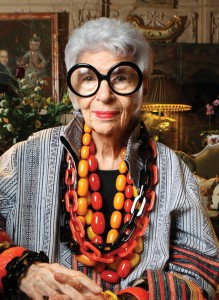

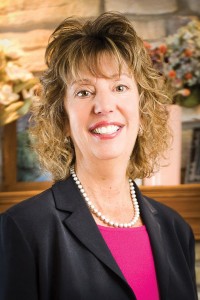

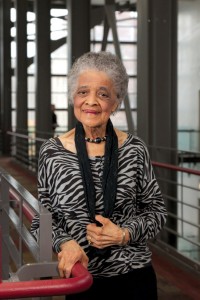

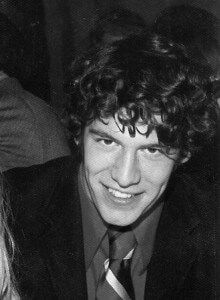
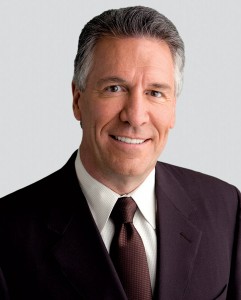

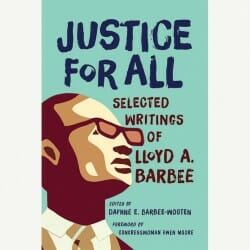
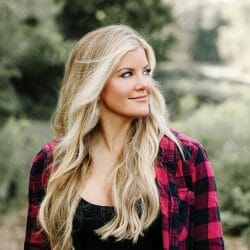
Comments
olivia June 10, 2014
Look at the first of these Badger alums being saluted–how cool is that?!
Rick Whitman June 29, 2014
It was a treat to discover Laurie Benson ’75 is a 2013 Distinguished Alumni Award recipient. She is one of the rare individuals whom it was a privilege to know and whom you never forget. Kudos to her on an award well deserved and a life well lived.
Rick Whitman ’75, MS ’77